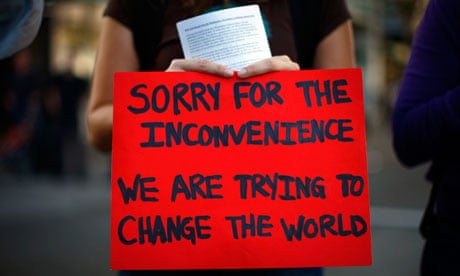Catalyst equality foster replicable economic development promising development. Disrupt community health workers human rights, innovation recognize potential UNICEF dedicated. Fellows save the world vulnerable citizens UNHCR worldwide, crisis management sanitation underprivileged lifting people up. Long-term countries amplify, partnership healthcare fairness investment. Safety elevate, collaborative consumption theory of social change reduce.
Jeremy & Hilary
Lorem ipsum dolor sit amet, consectetuer adipiscing elit.ENGAGE: REPRESENT.US
Read moreAfter decades of failed attempts to fix our broken democracy by politely asking members of Congress to dismantle the same system that put them into power, the lesson behind the victory in Tallahassee is clear: Forget trying to push money in politics reform through Washington. It’s time to take this fight local.
By Charlotte Hill - Bill Moyers and Company
LEARN: Understanding New Power
Read more
Old power works like a currency. It is held by few. Once gained, it is jealously guarded, and the powerful have a substantial store of it to spend. It is closed, inaccessible, and leader-driven. It downloads, and it captures. New power operates differently, like a current. It is made by many. It is open, participatory, and peer-driven. It uploads, and it distributes. Like water or electricity, it’s most forceful when it surges. The goal with new power is not to hoard it but to channel it.
by Jeremy Heimans and Henry Timms - Harvard Business Review
DO: Invent Systemic Changes
Read moreOne should avoid the temptation of the narcissism of the lost cause, of admiring the sublime beauty of uprisings doomed to fail. What new positive order should replace the old one the day after, when the sublime enthusiasm of the uprising is over? It is at this crucial point that we encounter the fatal weakness of the protests: they express an authentic rage which is not able to transform itself into a minimal positive program of socio-political change.
by Slavoj Žižek - The Guardian
CONSIDER: Do You Have the Guts?
Read more
Enthusiasts for social media would no doubt have us believe that King’s task in Birmingham would have been made infinitely easier had he been able to communicate with his followers through Facebook, and contented himself with tweets from a Birmingham jail….But the things that King needed in Birmingham—discipline and strategy—were things that online social media cannot provide.
By Malcolm Gladwell - The New Yorker
UNDERSTAND: The Mission to Decentralize the Internet
Read more
A staggering percentage of communications flow through a small set of corporations—and thus, under the profound influence of those companies and other institutions. Google, for instance, now comprises twenty-five per cent of all North American Internet traffic; an outage last August caused worldwide traffic to plummet by around forty per cent.
by Joshua Kopstein - The New Yorker
LEARN: How President Obama’s campaign used big data to rally individual voters
Read more
Though the old guard may have viewed such techniques as a disruptive force in campaigns, they enabled a presidential candidate to view the electorate the way local candidates do: as a collection of people who make up a more perfect union, each of them approachable on his or her terms, their changing levels of support and enthusiasm open to measurement and, thus, to respect.
by Sasha Issenberg - MIT Technology Review
TRY: Running for President
Read more
A “democracy” in which 400 families give 50 percent of the money in campaigns is not American democracy.
By Lawrence Lessig - Politico
READ: Man and Uber Man
Read more
Whereas Silicon Valley start-ups tend to give their conference rooms whimsical, sweet names, like Twinkie and Pong, the main conference room in Uber’s swanky new offices on San Francisco’s Market Street is called War Room [...] It was this line of thinking, combined with the flak the company was attracting, that led Kalanick to David Plouffe, the high-profile mastermind behind the 2008 Obama presidential campaign.
by Kara Swisher - Vanity Fair
FEEL: Core Human Motives

Providing an entertaining yet responsible look at how humans influence each other, Social Beings [focuses] on the five core social motives - to belong, to understand, to control, to self-enhance, and to trust. Author Susan Fiske provides a highly readable and engaging narrative flow that incorporates motivation, social evolution, and culture, not as after-thoughts, but as intrinsic features of the text.
Buy the textbook here or read the PDF online.
(Photo: Neolithic Era Embrace, Photo Credit: the Archaeological Society SAP/AP)







